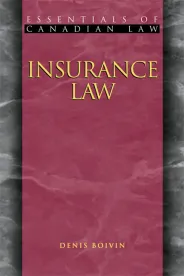In what appears to be the first counter-offensive of its kind between life insurers and regulators, on September 4, 2013, three life insurers filed an action against the Illinois Department of Insurance and its Director. The insurers seek a declaration that there is no affirmative obligation to search the Social Security Administration’s Death Master File for potential life insurance claims.
The plaintiffs – United Insurance Company of America, Reserve National Insurance Company, and The Reliable Life Insurance Company – state that, on June 1, 2012, the Department initiated a market conduct examination of the insurers, appointing Verus Financial as the examiner. At that time, Verus was already engaged as an auditor by the Illinois Treasurer (and 37 other state treasurers/comptrollers) to conduct multi-state unclaimed property audits of the plaintiffs.
In its role as unclaimed property auditor, Verus requested extensive information regarding all policies in force since January 1, 1996. Among other information, Verus sought detailed electronic information concerning each insured’s name, last known address, Social Security number, date of birth, and age at policy issue. The purpose of the requests was to enable Verus to compare the insurers’ in-force policy records against the DMF to identify potentially deceased insureds. The insurers objected to the requests on the ground that there was no obligation to search the DMF.
The insurers received similar requests in connection with the market conduct examination, which was broadened in May 2013 to include five other states. According to the complaint, the Department’s General Counsel advised the insurers that if they failed to produce data for the DMF comparison, the Department would view such a failure as “noncooperation in the market conduct examination.”
Unwilling to accede that demand, the insurers filed an action in Cook County, Illinois, seeking a declaration that there is no affirmative obligation under the Illinois Insurance Code or applicable insurance regulations to use the DMF to determine whether an insured is deceased. They also seek a declaration that they have no obligation to investigate, settle, or pay death claims until they receive a claim and due proof of death.
This is a significant step in a long-simmering dispute between life insurers and regulators over the use of the DMF. Life insurers contend that there is no duty under existing law to search the DMF or other public databases for potential death claims. A handful of insurers have advanced this position successfully in private litigation brought by policyholders, and nearly seventy life insurers have recently moved to dismiss lawsuits in West Virginia, citing the absence of such a duty. Until now, however, no insurer has filed a legal action in connection with a market conduct examination to declare the regulators’ demands out of bounds. It remains to be seen whether other life insurers will follow suit.






 />i
/>i

